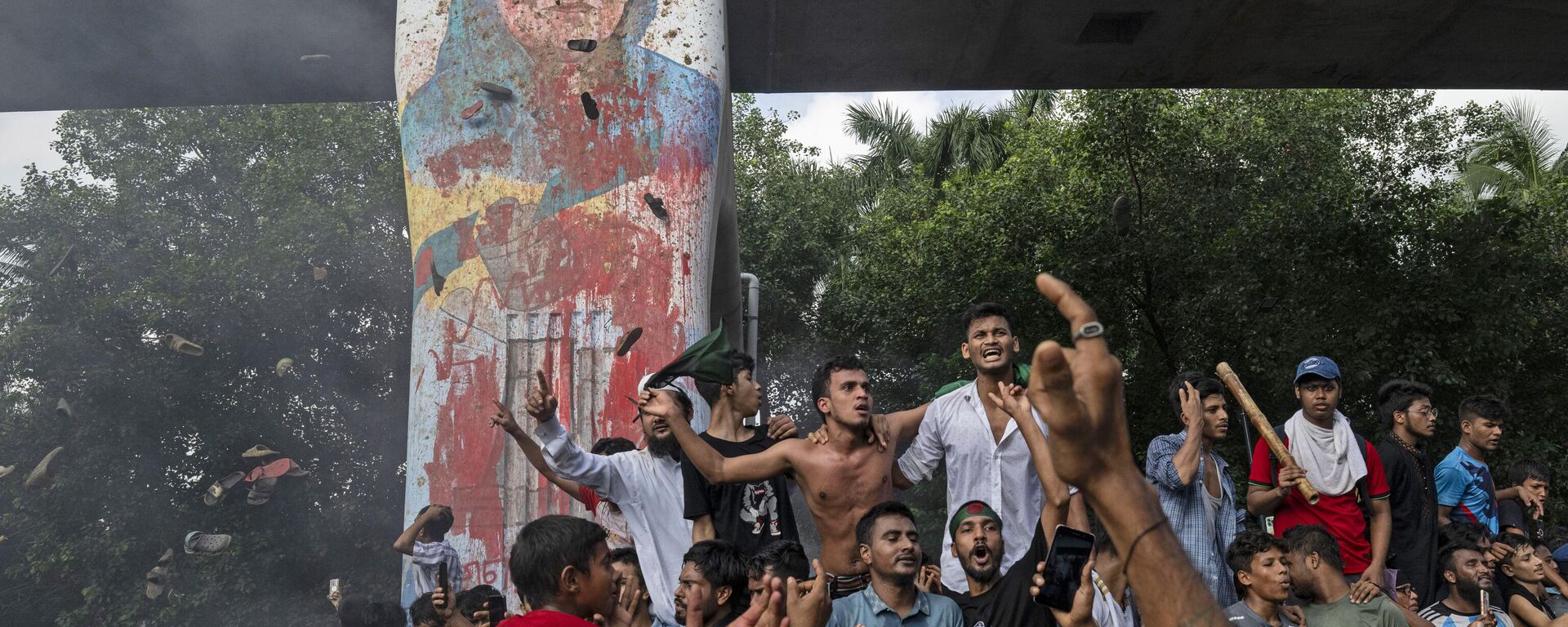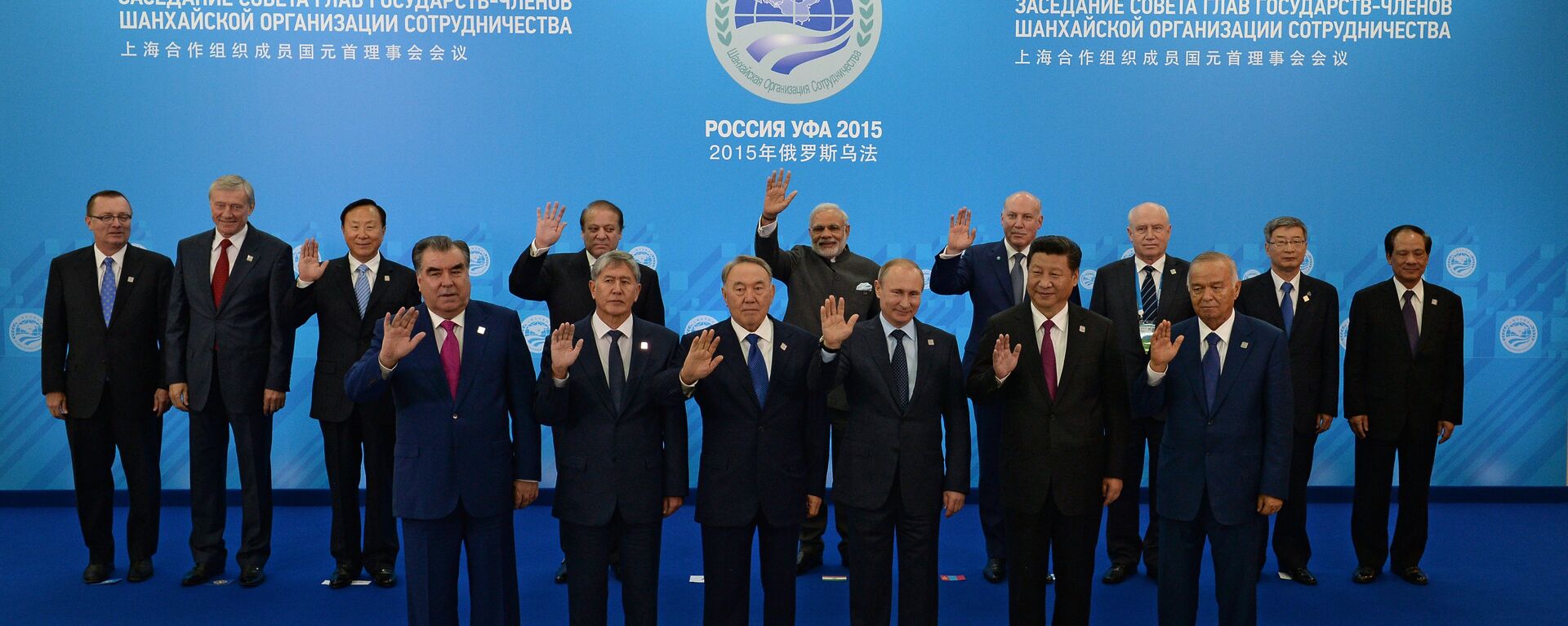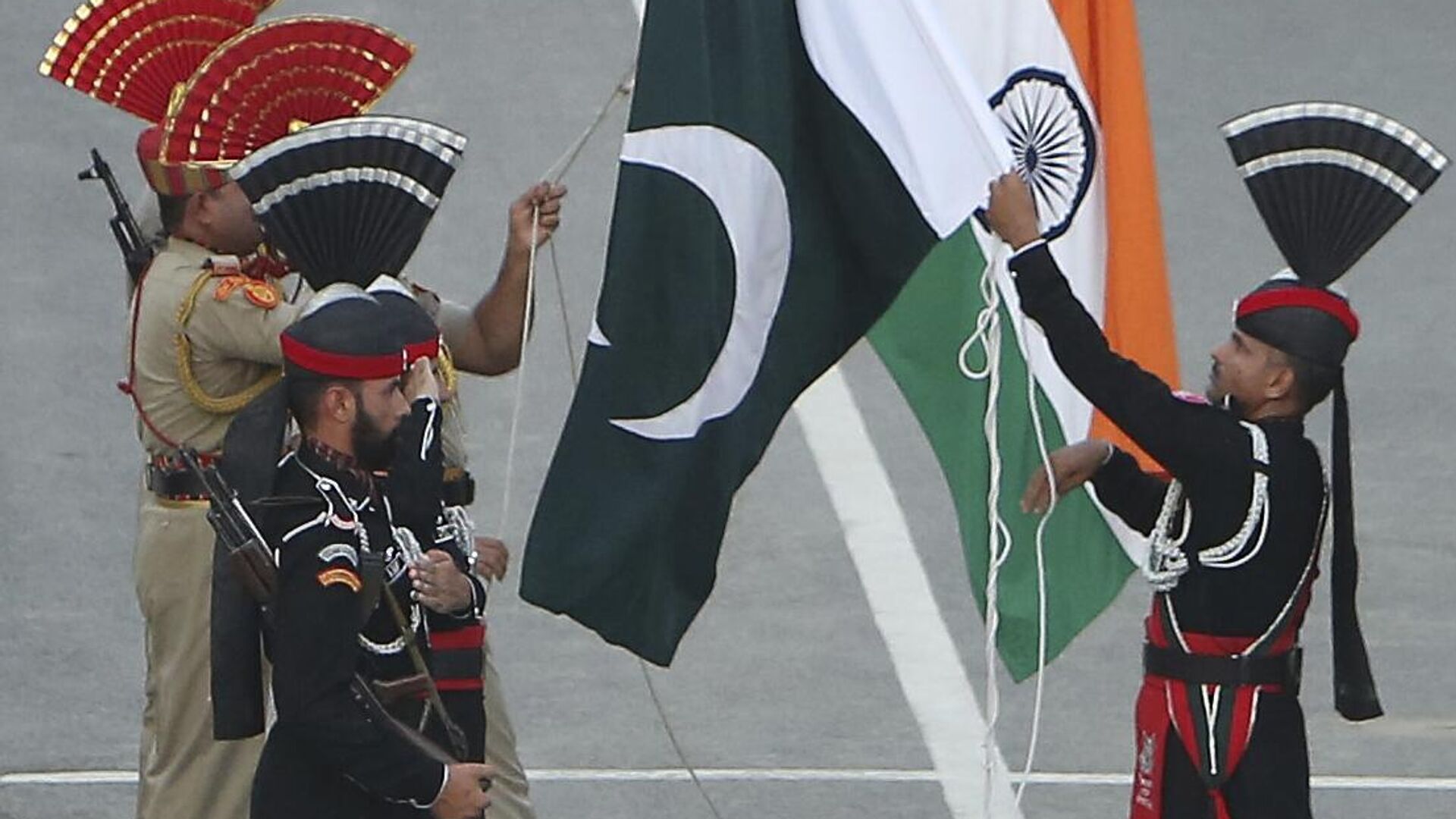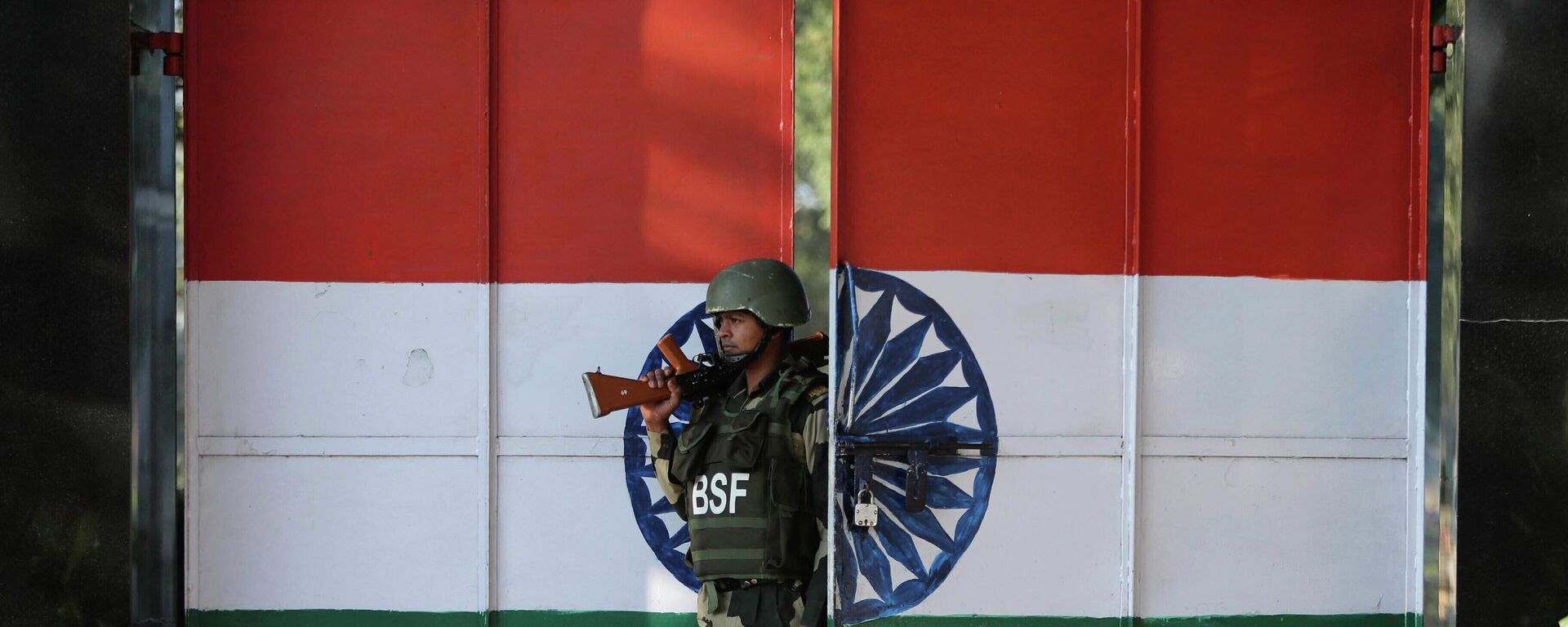https://sputnikglobe.com/20250424/whats-brewing-between-india-and-pakistan-1121927363.html
What's Brewing Between India and Pakistan?
What's Brewing Between India and Pakistan?
Sputnik International
Tuesday's deadly terror attack in Kashmir has pushed the two nuclear-armed rivals to the brink of conflict. Here's how things got to this point, and where they may go from here.
2025-04-24T15:35+0000
2025-04-24T15:35+0000
2025-04-24T15:35+0000
india
pakistan
kashmir
islamabad
lashkar-e-taiba
inter-services intelligence (isi)
shanghai cooperation organisation (sco)
asia
https://cdn1.img.sputnikglobe.com/img/07e9/04/18/1121927206_0:332:1105:954_1920x0_80_0_0_6cd621c9bd845ab4c248655cefc20585.jpg
On April 22, militants from ‘The Resistance Front’ (TRF), an offshoot of Pakistan-based Salafi-jihadist group Lashkar-e-Taiba, shot 26 civilians (mostly tourists) and injured 17 others in Baisaran Valley, Jammu and Kashmir.Survivors said the attackers asked victims their names and religion, ensuring they weren’t Muslim before executing them. Police identified 3 suspects on Thursday — saying two of them are Pakistani nationals.India suspects Pakistan’s ISI intelligence service of funding, training arming TRF militants, and using them as a proxy to keep Kashmir in a perpetual state of chaos.Pakistan denies supporting TRF, but has openly expressed support for Kashmir militants' "fight for self-determination" at a moral, political, and diplomatic level.The Islamist insurgency in Kashmir, dating back to 1989, has claimed 45,000+ lives, including over 20,000 civilians, to date.India's response to the April 22 attack so far has included:Pakistan, for its part, put its Air Force on alert, stepped up border security, closed its airspace to Indian airlines and suspended all trade.Islamabad also warned “any kinetic step” (i.e. military action) “will see a TIT-FOR-TAT response.”Pakistan emphasized that any attempt to deny access to water would be treated as an "act of war." A water-insecure country, Pakistan depends on the Indus River network and its tributaries for up to 80% of its surface water for agriculture, industry, hydroelectric power and drinking water.Balakot 2.0 Imminent?In February 2019, Indian warplanes targeted militant camps in Pakistan's Balakot in response to terror attack on its troops in Kashmir.Just before the strike, India briefed diplomats on Kashmir terror.Similar briefings took place on Thursday.Kashmir and India-Pakistan RelationsKashmir tensions were already simmering before Tuesday’s terror attack. Earlier this month, tensions along the Line of Control spilled out into cross-border firing, with India accusing Pakistan of fueling tensions to distract from domestic economic and political troubles.Kashmir has poisoned India-Pakistan relations since 1947, triggering three of four major wars between the two countries. Some historians believe the UK deliberately sowed the seeds of enmity with a divide-and-rule strategy that separated the nations on independence in such a way as to guarantee conflict.Today, too, the dispute benefits the West, aiming to disrupt Shanghai Cooperation Organization and BRICS cooperation.
https://sputnikglobe.com/20250424/indian-government-suspends-visa-issuance-to-pakistani-citizens-1121926208.html
https://sputnikglobe.com/20240811/how-mackinders-heartland-theory-of-geopolitics-helps-explain-bangladeshi-pm-hasinas-ouster-1119725428.html
https://sputnikglobe.com/20241126/eurasian-security-should-replace-bankrupt-euro-atlantic-structures---russian-intel-1121004344.html
pakistan
kashmir
islamabad
Sputnik International
feedback@sputniknews.com
+74956456601
MIA „Rossiya Segodnya“
2025
News
en_EN
Sputnik International
feedback@sputniknews.com
+74956456601
MIA „Rossiya Segodnya“
Sputnik International
feedback@sputniknews.com
+74956456601
MIA „Rossiya Segodnya“
what happened in kashmir, are india and pakistan going to fight, was there terror in kashmir, how will india respond to kashmir terrorism
what happened in kashmir, are india and pakistan going to fight, was there terror in kashmir, how will india respond to kashmir terrorism
What's Brewing Between India and Pakistan?
Tuesday's deadly terror attack in Kashmir has pushed nuclear-armed rivals India and Pakistan to the brink of conflict. Here's how things got to this point, and where they could go from here.
On April 22, militants from ‘The Resistance Front’ (TRF), an offshoot of Pakistan-based Salafi-jihadist group Lashkar-e-Taiba, shot 26 civilians (mostly tourists) and injured 17 others in Baisaran Valley, Jammu and Kashmir.
Survivors said the attackers asked victims their names and religion, ensuring they weren’t Muslim before executing them. Police identified 3 suspects on Thursday — saying two of them are Pakistani nationals.
India suspects Pakistan’s ISI intelligence service of funding, training arming TRF militants, and using them as a proxy to keep Kashmir in a perpetual state of chaos.
Pakistan denies supporting TRF, but has openly expressed support for Kashmir militants' "fight for self-determination" at a moral, political, and diplomatic level.
The Islamist insurgency in Kashmir, dating back to 1989, has claimed 45,000+ lives, including over 20,000 civilians, to date.
India's response to the April 22 attack so far has included:
Suspending the landmark 1960 Indus Waters Treaty.
Closing the Attari border post, the last remaining route for India-Pakistan land-based trade.
Cancelling visas of Pakistani nationals and demanding their expulsion within 48 hours.
Expelling Pakistani military attaches in New Delhi, and pulling out its own military attaches in Islamabad.
Pakistan, for its part, put its Air Force on alert, stepped up border security, closed its airspace to Indian airlines and suspended all trade.
Islamabad also warned “any kinetic step” (i.e. military action) “will see a TIT-FOR-TAT response.”
Pakistan emphasized that any attempt to deny access to water would be treated as an "act of war." A water-insecure country, Pakistan depends on the Indus River network and its tributaries for up to 80% of its surface water for agriculture, industry, hydroelectric power and drinking water.
In February 2019, Indian warplanes targeted militant camps in Pakistan's Balakot in response to terror attack on its troops in Kashmir.
Just before the strike, India briefed diplomats on Kashmir terror.
Similar briefings
took place on Thursday.

11 August 2024, 17:10 GMT
Kashmir and India-Pakistan Relations
Kashmir tensions were already simmering before Tuesday’s terror attack. Earlier this month, tensions along the Line of Control spilled out into cross-border firing, with India accusing Pakistan of fueling tensions to distract from domestic economic and political troubles.
Kashmir has poisoned India-Pakistan relations since 1947, triggering three of four major wars between the two countries. Some historians believe the UK
deliberately sowed the seeds of enmity with a divide-and-rule strategy that separated the nations on independence in such a way as to guarantee conflict.
Today, too, the dispute benefits the West, aiming to disrupt Shanghai Cooperation Organization and BRICS cooperation.

26 November 2024, 10:08 GMT






